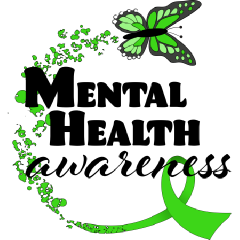| May is National Mental Health Awareness Month, so it’s the perfect time to make sure you have an open line of communication with your kids and teens. Did You Know May is Mental Health Awareness Month? Mental Health Awareness Month began in 1949 to shed light on the importance of an individual’s emotional wellbeing, and to celebrate recovery from mental illness. Although we have come a long way in reducing stigma and barriers in seeking mental health care, there is an urgency to continue this effort. As a globe, mental health has been impacted by the continuation of the COVID-19 pandemic and further compounded by the conflict in Ukraine, sparking increased conversations about mental health. Currently, many of our children, teens, and young adults are facing unprecedented mental health challenges. The United States Surgeon general warned in early December 2021, young people are experiencing a “devastating” mental health crisis. A recent article in the NY Times, (It’s Life or Death: The Mental Health Crisis Among US Teens) sheds light on the alarming number of adolescents seeking care in emergency rooms around the country today, and highlighting the shortage of mental health providers. According to the CDC, a 2021 study found more than a third (37%) of high school students reported they experienced poor mental health during the COVID-19 pandemic, and 44% reported they persistently felt sad or hopeless during the past year. Parents, make sure to let your kids know it’s ok to ask for help. Tell them, “You can always come talk to me. We will get through this together.” Then make sure you listen without judgement when they do come to you for help. |
| Below are some warning signs your child, teen, or young adult may be struggling and need professional care: -Severe worry or anxiety, as shown by regular refusal to go to school, go to sleep or take part in activities that are normal for the child’s age -Marked changes in sleeping and/or eating habits -Frequent physical complaints -Depression shown by sustained, prolonged negative mood and attitude, often accompanied by poor appetite, difficulty sleeping or thoughts of death -Extreme difficulties in concentrating that get in the way at school or at home -Sexual acting out -Repeated use of alcohol and/or drugs In an emergency, use these crisis hotline numbers: 1-800-SUICIDE (1-800-784-2433) 1-800-273-TALK (1-800-273-8255) Crisis Text Line: 741 741 NJ Children’s Mobile Response (in-home emergency support): 877-652-7624 To acknowledge Mental Health Awareness Month: Encourage your loved ones to share their story through NAMI’s website. This can bring hope and healing to others on their journey to mental illness recovery. And remember, we’re here to help. Here’s to Your Well Being, Kelly Smith-Pampin, MSW LCSW Licensed Therapist |


